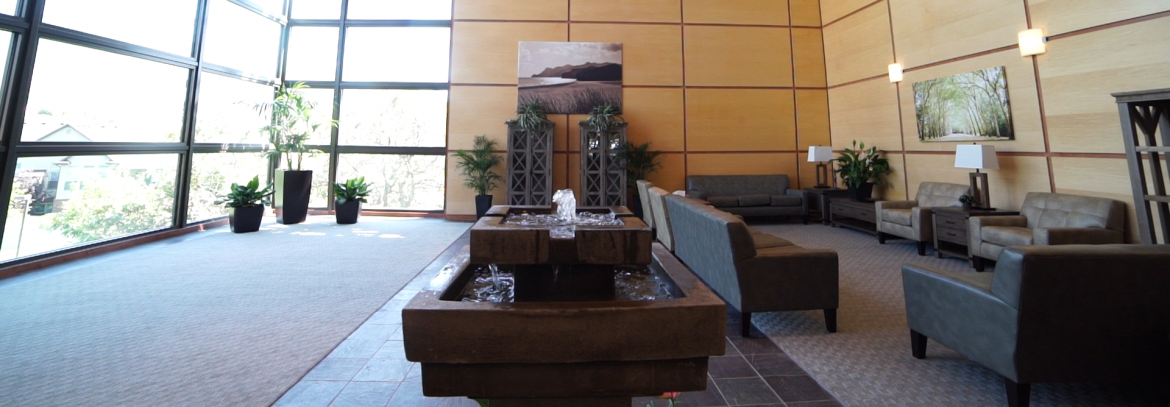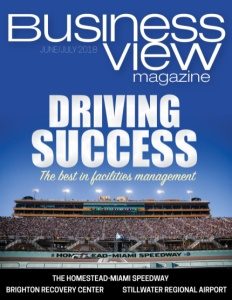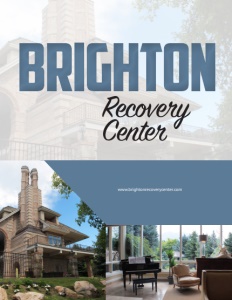Brighton Recovery Center
One person at a time
Business View Magazine interviews Jonathan Saul, ED of Brighton Recovery Center, as part of our series on addiction treatment facilities.
Brighton Recovery Center opened the doors to its new, state-of-the-art, 20-bed facility in July 2015, in South Ogden, Utah, in a former 19-acre, 36,000-sq.-ft. monastery. “We had to change that building very little because the nuns had it set in a way where all the single rooms were already built out with their own bathrooms,” says CEO and Executive Director, Jonathan Saul. “It’s a pretty big space for a few people.” Brighton opened its second location in Sandy, Utah, in July, 2017 – a 17,000-sq.-ft. facility on seven acres of pristine mountainside property. “We call it Willow Creek. It’s also small – it’s a 16-bed facility, so in total, we have 36 residential beds.”
The relatively small size of Brighton Recovery Center’s two residential populations is keeping in sync with its philosophy of offering the best in individualized care in an environment that is conducive to healing. “Our staff is fairly large – we have about 80 people, and that includes full-time, part-time, and contracted employees,” Saul reports. “The therapist to patient ratio is six to one, which allows us to individualize the care.”
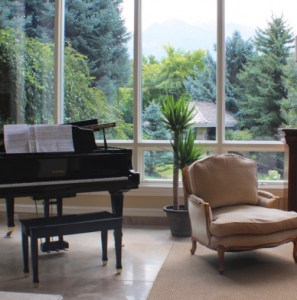 The center’s treatment model consists of a multi-faceted approach that deals with the physical, emotional, behavioral, spiritual, intellectual, and interpersonal challenges of each patient. “We distinguish ourselves from others by the organic component of our care,” says Saul. “We’re a dual-diagnosis facility. We’re treating the mental health component at the same time we’re treating the addiction component. And those can vary widely, as well. Treatment of substance addiction is typically the same, whether it’s alcohol or opioids. But everybody’s situation is unique in terms of all of the other extenuating factors that are involved in that addiction process. So, every treatment for every person is a little different.”
The center’s treatment model consists of a multi-faceted approach that deals with the physical, emotional, behavioral, spiritual, intellectual, and interpersonal challenges of each patient. “We distinguish ourselves from others by the organic component of our care,” says Saul. “We’re a dual-diagnosis facility. We’re treating the mental health component at the same time we’re treating the addiction component. And those can vary widely, as well. Treatment of substance addiction is typically the same, whether it’s alcohol or opioids. But everybody’s situation is unique in terms of all of the other extenuating factors that are involved in that addiction process. So, every treatment for every person is a little different.”
That respect for the individual begins well before he or she ever comes to a Brighton facility. “When people call us for admissions, they don’t get a call center or an answering service,” Saul states. “Somebody on the admissions team is going to answer that phone and answer the questions about who we are and what we do. We talk about the people and their families, what the situation is, and what they’re going through. And it can be time consuming, because people aren’t always in the best head space to have a conversation like this – they’re calling after that last drink or after that last use of whatever they had. So we hold their hand and walk them through the process.
“I would challenge you to call any of the bigger treatment centers in the country and ask a couple of questions – one of the first questions you’ll get back is ‘What’s your insurance?’ or ‘What’s your ability to pay?’ But I view this as a service to people. When every callback comes through, we run it as ‘How can we be of service to the person and their family?’ If the person calls and they’re not the best fit for us, we’re not just going to throw them to the wind; we’re going to help them find some place that’s good for them. So, we spend a lot of time on the phone with people, and people really appreciate that.”
This respect for an individual’s particular needs is heightened by a staff that Saul says is over 50 percent in recovery, themselves. “They’ve been through some kind of treatment,” he notes. “The other percentage is people who are not in recovery, but have a direct experience with others in their lives that have issues with this disorder. This disease has no boundaries – no socio-economic boundaries, no racial, or any kind of personal boundaries; it is pervasive in every sector. Wherever there are human beings, this disease lives and thrives. So, we are treating the human being, and the people treating people are people, themselves.”
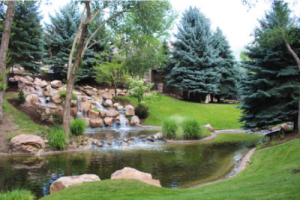 One way in which Brighton treats people is by helping those who are employed keep their jobs, while helping those who are not, to get one. “We do work with a lot of people who are already employed,” says Saul. “We try to fight in any way we can to help them keep their jobs because a lot of them come through on ‘job jeopardy.’ The folks who aren’t employed – we’re constantly looking for partners out in the community to help with job placement. Our case managers are working with them, or taking them to interviews before discharge. That falls within that individual approach to treatment – it’s based on what each person needs.”
One way in which Brighton treats people is by helping those who are employed keep their jobs, while helping those who are not, to get one. “We do work with a lot of people who are already employed,” says Saul. “We try to fight in any way we can to help them keep their jobs because a lot of them come through on ‘job jeopardy.’ The folks who aren’t employed – we’re constantly looking for partners out in the community to help with job placement. Our case managers are working with them, or taking them to interviews before discharge. That falls within that individual approach to treatment – it’s based on what each person needs.”
Saul says, that, going forward, he would like to continue to keep things small, “so we can individualize the care, because that seems to be the model that works best for us and, in my mind, that’s how you treat people with dignity and respect and not create a ‘treatment mill,’ where you’re just pumping people in and out of treatment, while focusing on the bottom line.”
That being said, Brighton Recovery Center is still a for-profit business, itself, subsisting on its relationships with insurance companies and its private payers, and Saul does believe in growing the company. So, it is expanding again, adding a sober living and outpatient community center in Salt Lake City to its two original residential centers, each with its own, coinciding outpatient program. “It’s something we’re really excited about,” he exclaims. “We’re going to start a model here in Utah that doesn’t yet exist, and we’re looking at changing the face of the recovery community in the Salt Lake area for the better. We’re constantly working to de-stigmatize the disease. Our community center, I think, will change the way that people in Utah are looking at early recovery in the addiction world.”
In several more years, Saul says if things are functioning smoothly, he may think about further growth. “If down the line, we’re doing well, and we want to replicate our model somewhere else, then we’ll have that conversation. Right now, my vision is to always be on the cutting edge of disease concepts, and always offering evidence-based care and what’s new and known to be working – one person at a time.”
Check out this handpicked feature on The Salt Palace Convention Center – Unique in the industry.
AT A GLANCE
WHO: Brighton Recovery Center
WHAT: A 24-hour rehab center treating addiction and mental health issues
WHERE: Ogden, Utah
WEBSITE: www.brightonrecoverycenter.com
